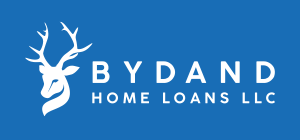
FHA Loans Explained
An FHA loan is a type of government-backed mortgage loan that can allow you to buy a home with looser financial requirements. You may qualify for an FHA loan if you have debt or a lower credit score. You might even be able to get an FHA loan with a bankruptcy or other financial issue on your record.
In this article, we'll take a closer look at FHA home loans, their requirements and whether an FHA loan might be right for you.
FHA Loans Explained
The FHA loan is a government-backed mortgage that can help you purchase your home with looser financial requirements. You might qualify for this type of financing if credit scores are below average, or perhaps even in cases where bankruptcy has been previously recorded on one’s record. You may be thinking an FHA loan is not for you. But before we get ahead of ourselves, let’s take a closer look at the benefits and requirements involved with this type of mortgage.
What is an FHA Loan
Homeownership is an American dream, and FHA loans make it more accessible than ever before. These government-backed programs offer low down payment options for those who would like to buy their first home or invest in real estate by using rental properties as well.
There are a number of benefits to FHA loans, which can make them an attractive option for first-time home buyers. In addition the low down payment and less stringent credit requirements mean that these types of financing might be more accessible than other options even if you don’t qualify as soon as you start looking. Some benefits of FHA loans are:
- Lower credit score requirements
- Lower down payments
- You can still qualify even if you have experienced financial hardships such as bankruptcy
- Closing costs are often rolled into the loan
FHA Loan Requirements
The following are some of the requirements that borrowers must meet in order to qualify for an FHA loan:
- The home you would like to purchase must be appraised by an FHA approved appraiser
- FHA loans can only be applied to a primary home, it cannot be used for investment properties
- The property must be occupied within 60 days
- An inspection much occur and be reported whether the property meets the minimum property standards
FHA loans have specific conditions when it comes to down payments, mortgage insurance, credit score, loan limits and income requirements. We'll take a look at these factors below.
Down Payments
Your down payment is the percentage of purchase price that you put upfront for a home. The minimums vary depending on your credit score, but in general it's linked to how financially stable someone feels they are when purchasing their first house. The number that tells everything about your creditworthiness is known as a “credit score.” The range, from 300-850+ reflects how reliable you are when borrowing money. For example an FHA loan requires at least 3% down payment for loans between 500 and 580; however if someone has good enough ratings they may be able to get one in this category with 10%. You can use a mortgage calculator to see how your monthly payments will change depending on the down payment amount.
Mortgage Insurance
The FHA requires mortgage insurance, which is a cost paid by the borrower. This protects your lender in case you default on payments; it ensures they are compensated for any damages resulting from this disaster. In most cases, you will pay mortgage insurance for the life of an FHA loan (unless your down payment was at least 10%). The cost normally amounts to 1.75% base loan amount and is collected upfront as a premium when borrowing from this program or through other means depending on what type it may be. FHA borrowers pay an annual mortgage insurance premium, which is based on the term (length) of your loan and LTV ratio. For example: If you finance 20% down with a 60 month fixed rate at 3%, then MIP will run approximately 0-1%. The amount paid annually can vary depending upon various factors such as credit score requirements or total debt owed but it’s usually less than 1%.
FHA and Your Credit Score
Factors that define a credit score:
- Type of credit
- Credit utilization
- Bill payment history
- Credit card debt or amount owed
- Amount of new or recent credit that has been taken on
It’s important to understand the debt-to-income ratio, or DTI. This measures how much of your monthly gross income goes toward paying off debts every year before taxes are taken out in order for you to qualify for loans with lower interest rates than what would otherwise be available based on this measure alone – even if it is higher than 30%. You can determine your own debt-to-income ratio by dividing all of the debts you have, including student loans and car payments. If this number reaches two times what an individual makes each month then it’s considered high risk for mortgages because there could be trouble making ends meet in retirement if something goes wrong with finances later down the road. The lower your debt to income ratio, the more likely it is that you will qualify for an FHA loan. Even if someone has a higher credit score but still qualifies with low DTI he might be able to do so because of this program’s flexible requirements which make them easier on those who may not always have perfect scores or timely payments history. When you buy a home, the mortgage payments should not exceed 31% of your monthly gross income. But if there are certain circumstances like high credit scores and manual underwriting then this percentage may go up to 43%.
Loan Limits
The maximum loan amount for an FHA home depends on the county where you want to live.The Department of Housing and Urban Development has released new maximum FHA lending amounts for high-cost areas. These include large metropolitan counties, which can now have a limit up to $822 375 dollars on one unit property; or else they may be as low at 356 362 depending upon the value in that particular area where you live! Loan limits also vary based off what part (or rather -“degree”) your county falls into when it comes down to valuation ratio. The FHA mortgage limits page is a great way to find out what you can afford in terms of home ownership. You’ll also want this information before deciding which loan type best suits your needs, so make sure not only do they have an accurate estimate for median sale prices but how much these values may change over time.
Interest Rates
FHA interest rates are often competitive compared to conventional mortgages. This is because the government backing decreases your risk and allows lenders to offer you a lower rate in return, depending on several factors like current market conditions or how much money someone has available for down payment as well their credit score, amount they plan to borrow, DTI ratio, etc.
Income Requirements
Your FHA loan eligibility doesn’t hinge on a particular income amount, but you must prove that your financial stability is sound. This means sharing pay stubs and W-2s with the lender so they can verify both current employment as well any previous jobs held for at least three months within the last five years before applying – this will help ensure approval. A few other pieces of documentation might also be requested: bank statements (to show recent deposits) or tax returns if applicable.
Types of FHA Loans
FHA loans come in many different forms, and they’re designed for borrowers who want to take on a new mortgage.
-
Purchase: When it comes to purchasing a home, you can get in with a little as 3.5% down if you have a median FICO® Score of 580.
-
Rate/Term Refinance: If you are looking for an opportunity to save money on your mortgage, but have suffered some credit score damage from recent events in life and want the benefits of lower rates without taking a hit yourself-look into FHA Term Refinancing.
-
FHA Streamline: Have you been considering a rate/term refinance for your FHA-insured home? If so, don’t miss out on the opportunity offered by Streamline Loans! This type of financing can save money and give homeowners an even lower monthly payment. For example: if they owe more than what their house is worth then this option could allow them to stay in good standing while still saving some cash each month, it’s like having two loans open at once.
-
Cash-Out Refinance: You can get a cash-out refinance with an FHA loan if you have at least a 620 credit score. Rocket Mortgage requires this median number, and they don’t want homeowners who are going from being underwater on their mortgages (having less than 20% equity) because then we’d be converting property values into money rather than leaving some cushion for unexpected expenses.
Is an FHA Loan Right for You?
As we have covered in the article, mortgage loans are not one size fits all. The FHA loan is a great choice for those who want to avoid any risk with their mortgage. This type of financing comes directly from the government, so you know that it will be stable no matter what. Fannie Mae and Freddie Mac offer conventional loans but these are not backed by federal guarantees like other types do. Although FHA loans are nonconforming, they still require more stringent requirements than conventional ones.
Regardless of the type of loan you choose there are still costs that will be accrued in any time of loan process like closing costs. Closing costs can vary depending on the price of your house and which type of mortgage you choose, but they should be budgeted at about 3% – 6%. These fees include things like processing charges as well as those related to securing a loan for its intended use.
When buying a house, it's important to factor in some extra money for maintenance. You should budget 1% - 3% of your purchase price and the percentage will depend on how old or newer an area is where you buy property- as older homes are more likely than not going to come with broken appliances from day one! If there’s also homeowners association fees involved then these can be accounted for monthly too so make sure they’re taken care before moving forward If this sounds all too complicated just remember that any big investment requires research right? Well when we talk about real estate purchases their typically even bigger investments since houses often last decades.
Bottom Line
If you’re in the market for a loan with lenient credit, lower down payment and low-to-moderate income requirements, an FHA loan might be right for you. If you're ready to take the next step click the Apply button below!

